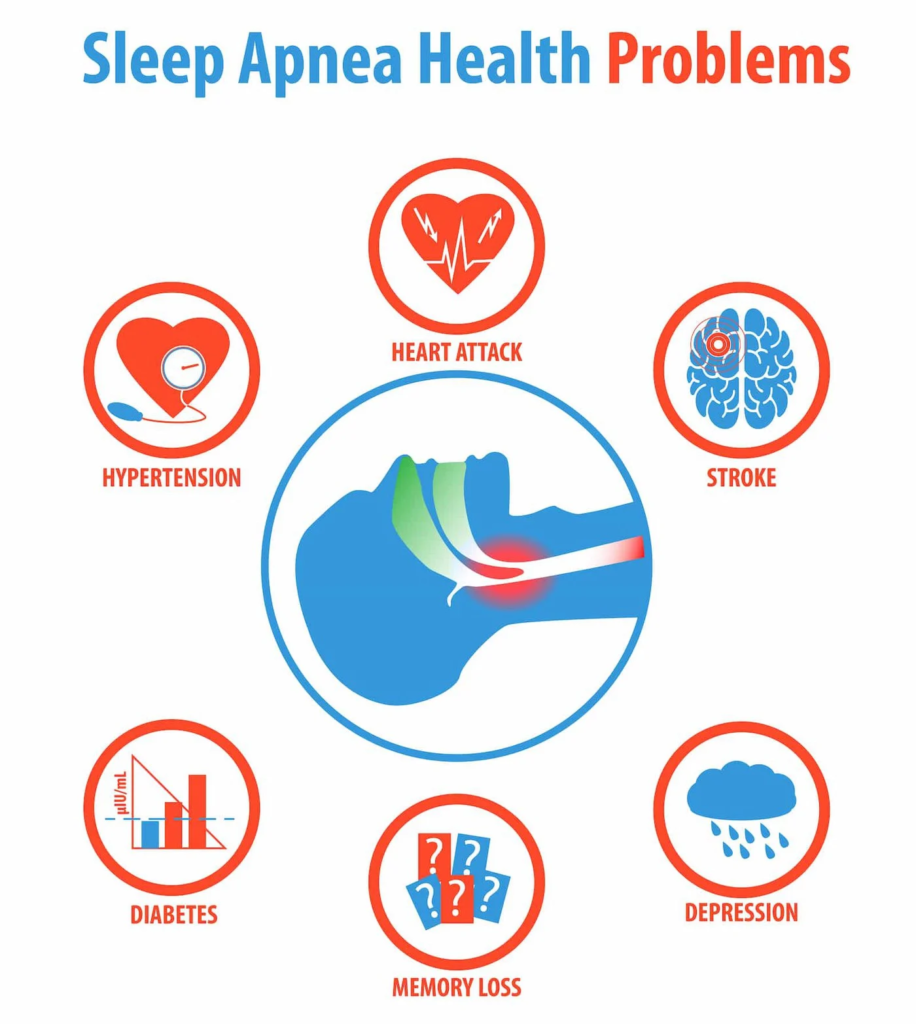How to Snore Less and Sleep Better

Did you know that loud snoring is one of the most common problems that we see as a busy ENT specialist in Singapore? This is often a sign of a more worrying condition called Obstructive Sleep Apnea.
Funnily enough, the snorer is usually unaware of his snoring symptoms, until his partner, complains!
Snoring is the noise which occurs when there is some form of airway obstruction. This means that there is a narrowing of the airway somewhere, from your nasal passages to the back of your nose to your tongue base and throat. For example, if you suffer from nasal allergies,your nose is likely to be congested quite often. This will reduce the airflow into your nose, making it difficult to breathe. So your mouth will probably be open at night when you are asleep: You become a mouth-breather and this is abnormal. It leads to waking up with a sore throat, reduced saliva production and dry throat too. When the airway is blocked, the oxygen flow entering your lungs is limited. The airflow also becomes irregular, causing the soft tissues of the throat close down to cause the snoring.
Snoring may be a socially troublesome symptom but the main concern is that snoring might be due to Obstructive Sleep Apnea (OSA). Obstructive sleep apnea is a worrying serious health condition as it means there is limited oxygen entering your airway during your sleep. In OSA, the oxygen levels in the blood keep falling repeatedly during the night when you are asleep. An apnea episode occurs when you stop breathing, which could be from a few seconds to as long as 2 minutes!
After a while, if the sleep apnea episodes keep recurring, the vital organs like the brain and heart don’t receive adequate oxygen supply. For some people with sleep apnea, these apnea episodes can happen as many as 200 times per night! That’s when the risk of complications of sleep apnea increase significantly.
There’s a long list of health problems associated with obstructive sleep apnea such as:
- Strokes
- Heart attacks
- Heart arrhythmias (irregular heart rhythms which may lead to tiny blood clots forming in your circulation) such as atrial fibrillation
- Hypertension
- Heart failure
- Type 2 diabetes
- Acid reflux
- Sexual dysfunction (due to low testosterone levels in men)
- Memory problems and possibly higher risk of earlier dementia

So what can you do about your snoring and sleep better?
Usually, you would need your nose and throat carefully examined by your friendly ENT specialist in Singapore. We would identify the levels of airway obstruction causing the snoring. We do this easily in clinic with a nasoendoscopy or “the nose scope”. In addition,an overnight sleep study is indicated to investigate the severity of obstructive sleep apnea, either at home or in hospital.

Depending on the findings of the nasoendoscopy and sleep study, then a trial of CPAP (Continuous Positive Airway Pressure) or surgery would be offered to you. We select our surgical candidates carefully to ensure the best postop results to help you breathe better and sleep well. Surgery works better in those patients where weight is well-controlled with a Body Mass Index (BMI) of 30 or less.
Weight management is important in the snorer/sleep apnea patient to prevent external compression of the airway by the excess soft tissue in the neck. Sometimes, we refer patients off to an Endocrinologist for specialist weight management. Some patients may benefit from starting anti-diabetic medications such as Ozempic, Saxenda or Wegovy.
If you decide on surgery to treat your snoring, we would usually tackle the nasal and palate (throat) levels of airway obstruction to help you breathe better. Sometimes, we also co-manage sleep apnea issues with our dental colleagues if the jaw and tongue are causing part of the airway obstruction and snoring. A mandibular advancement device is worn as a mouthguard to keep the lower jaw (mandible) pushed forward to prevent the jaw from collapsing backward and obstructing the airway.
Here are Dr Annabelle’s tips to snore less and sleep better:
- Get a proper pillow to suit your side or back sleeping habits. Good pillow support is essential to make sure your head and neck are aligned properly to keep your airway as open as possible when asleep.
- Adopt a good sleep routine with earlier nights being the key: Go to bed before midnight. It takes the average person approximately 30 mins to fall asleep. The key factor preventing you falling asleep is usually stress-related so try to reduce stress as much as possible.
- Regular exercise keeps you in good health and tires you out enough to sleep better. Exercise at least 3-4 times a week for 30-60 mins each time, even if it’s just walking!
- If you suffer from “morning sinus” or nasal allergies, it’s helpful to spray your nose before bedtime with a nasal steroid spray like Nasonex or Avamys to prevent nasal congestion.
- Avoid drinking caffeine after 3 pm especially if you’re caffeine-sensitive. This includes coffee, tea and dark chocolate.
Share this blog via:


